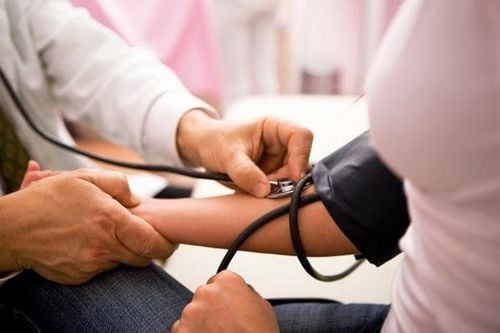This is an automatically translated article.
The vestibular is a part located behind the cochlea, plays an important role in balancing the body's activities when moving, standing, lying, bending or turning... When the body has Activities, movements, vestibular system will adjust accordingly to maintain a balanced posture. This activity is controlled by the higher nervous group.1. Vestibular disorders are easily confused with other diseases
Vestibular system has a role to keep balance for the body, so when this organ has problems, people with vestibular disorders will have symptoms of muscle imbalance and recurrence, which seriously affects them. activities, work and life of the patient.
Vestibular disorders the most common symptom is dizziness. Patients have a feeling that objects around them are spinning, often the feeling of rotation is very strong, especially uncomfortable. Accompanied by neurovegetative disorders such as nausea, sweating, fear of falling...
However, in fact, the manifestations of dizziness are easily confused with ordinary vertigo. If the patient has DR syndrome, the patient often has a feeling of being moved, everything around is spinning or the patient himself rotates compared to the surrounding objects.
In obvious cases, the sensation of displacement is very pronounced, which can occur on a vertical or horizontal plane. However, there are cases of vertigo that are not obvious, the patient only has a sensation of moving or swaying the body or feeling of flying, falling or feeling off balance. That's why many patients with DR often go to the doctor late because they think the attacks of dizziness.
Balance disorders are common manifestations in patients in the early stages of peripheral vestibular syndrome. There are varying degrees of disturbance, severe disturbance when the patient is unable to stand, mild or moderate disturbance with symptoms such as unsteadiness.
On examination may detect nystagmus: It is an automatic movement of both eyeballs characterized by a continuous, rhythmic, fairly regular and constantly changing appearance. direction of alternating motion (one fast and one slow).
In addition, depending on the location of the lesion, you may experience symptoms such as: tinnitus, hearing loss, deafness, hemiplegia, swallowing disorder, cerebellar syndrome...
To recognize DR syndrome , it is important to note the features of vertigo (which comes on suddenly and is spinning or can come on gradually with successive episodes of minor vertigo or only mild loss of balance when walking and then symptoms). this condition becomes chronic. Or dizziness occurs when changing position from lying down to sitting, does the dizziness deviate to one side).

Khám phân biệt bệnh
2. Notes for people with vestibular disorders
When there are manifestations of vestibular disorders, patients should note the following:
Regular exercise. At night, leave the night light on so that it is easy to observe things around. Do not sit continuously for too long, especially at the computer. Limit alcohol, coffee, and tobacco. Avoid contact with irritating substances or foods. Avoid turning your neck or getting up and down too quickly. Avoid driving or operating heavy machinery if you are frequently dizzy. Reduce stress, anxiety, panic. Avoid climbing high. Avoid reading books while in the car. Should sit or lie down immediately when feeling dizzy. Cooperate with the doctor for good treatment. In addition, for the best support on treatment as well as exercises to improve vestibular disorders, you should consult with leading experts in the field of Neurology.
Department of Neurology - Vinmec Times City International General Hospital is one of the prestigious and effective medical facilities specializing in examination and treatment of diseases related to the central nervous system.
Experienced medical team such as Assoc. Prof. Dr. Chu Hoang Van, Doctor Vu Dung Kien with expertise in the examination and treatment of diseases related to the central nervous system (cranial, meningeal, brain) , blood vessels in the brain, nerves in the skull, pituitary gland, spine, discs, spinal cord) and peripheral nervous system (nerves and ganglia outside the brain and spinal cord).
Please dial HOTLINE for more information or register for an appointment HERE. Download MyVinmec app to make appointments faster and to manage your bookings easily.













